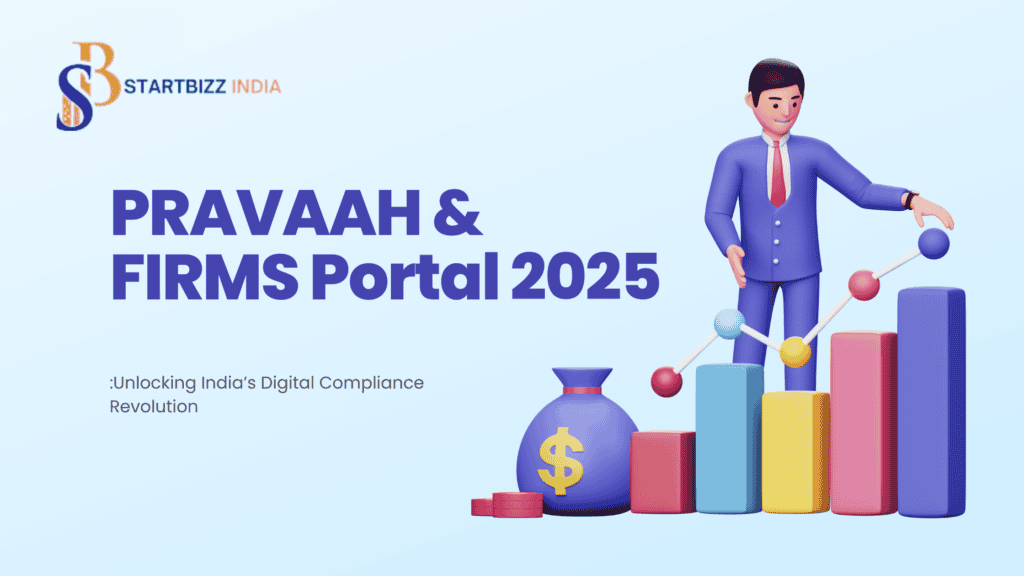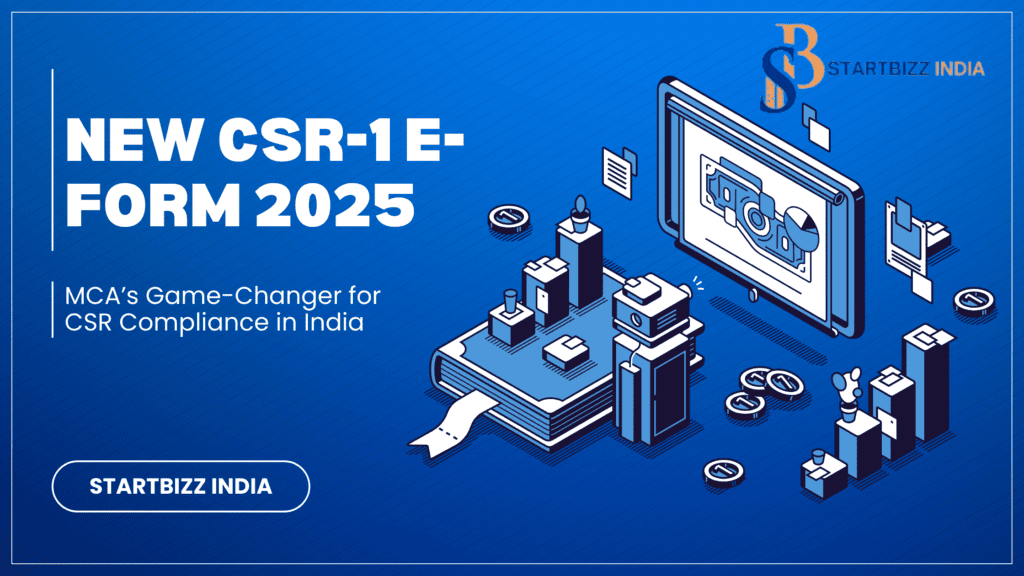Our seasoned professionals offer guidance to ensure you understand each step of the GST Registration process.
StartBizz India simplifies the GST Registration process, providing expert guidance and support at every step. Our services include:
introduction to GST Registration
Introduced in 2017, the Goods and Services Tax (GST) in India simplifies the taxation system for service providers, traders, and manufacturers by consolidating various taxes such as Service Tax, CST, Entertainment Tax, Excise Tax, and VAT. This unified tax regime enhances the efficiency of tax collection and administration. Businesses with an annual turnover exceeding Rs. 40 lakh must register for GST, while in North Eastern and Hill States, the threshold is Rs. 10 lakh.
Non-compliance with GST registration is a serious offense, leading to significant penalties. Typically, the registration process takes 2-6 working days. StartBizz India can streamline and expedite your GST registration process efficiently.
Types of GST in India
| Type of GST | Description |
|---|---|
| SGST (State Goods and Services Tax) | Levied on intra-state sales and replaces taxes like VAT, Sales Tax, and Entry Tax. |
| CGST (Central Goods and Services Tax) | Levied on intra-state sales and replaces taxes like Central Excise Duty, Service Tax, and CST. |
| UTGST (Union Territory Goods and Services Tax) | Applicable in Union Territories like Andaman & Nicobar Islands, Daman & Diu, and Chandigarh. |
| IGST (Integrated Goods and Services Tax) | Levied on inter-state sales and transactions. |
Benefits of GST Registration in India
- Small Business Composition Scheme: Businesses with a turnover between Rs. 20-75 lakhs can opt for lower taxes under the composition scheme, reducing their tax burden.
- Less Compliance: GST replaces multiple taxes with a single unified return, simplifying compliance compared to the pre-GST era.
- Access to a Larger Customer Base: Registered businesses can engage with large corporations and government entities that prefer GST-compliant suppliers.
- Input Tax Credit (ITC): Registered businesses can claim ITC on GST paid on inputs, enhancing cash flow and reducing overall tax liability.
- E-Commerce Treatment: GST provides a distinct framework for e-commerce, resolving inter-state tax disputes.
Eligibility for GST Registration
- Businesses exceeding the turnover threshold of Rs. 40 lakh (Rs. 20 lakh or Rs. 10 lakh in specific regions)
- Individuals supplying goods or services through e-commerce platforms
- E-commerce aggregators
- Supplier agents and input service distributors
- Businesses registered under pre-GST laws (VAT, Service Tax, Excise)
- Entities paying tax under the Reverse Charge Mechanism
- Casual and non-resident taxable persons
- Providers of online information and database access or retrieval services from outside India to customers in India
Documents Required for GST Registration
- Aadhaar Card
- PAN of the applicant
- ID and address proof of directors or promoters with recent photographs
- Address proof of the business premises
- Cancelled cheque or bank statement
- Digital signature
- Certificate of incorporation or business registration
- Authorization letter or board resolution for the authorized signatory
Online GST Registration Process with StartBizz India
Step-by-Step Guide:
- Provide Company Details: Submit your company details on our web portal.
- Document Collection: Gather all necessary documents as listed above.
- Application Submission: Our team will fill and submit the GST registration application on the GST portal.
- Verification: The GST authorities will verify your application and documents.
- GSTIN Issuance: Upon successful verification, a GSTIN (Goods and Services Tax Identification Number) will be issued.
GST Return Filing
Once registered, filing GST returns is mandatory, even with zero turnover. Here are the key returns:
- GSTR-3B (Monthly): A summary return due by the 20th of the following month.
- GSTR-1 and GSTR-2 (Monthly/Quarterly): GSTR-1 includes details of invoices raised, while GSTR-2 covers inputs consumed.
- GSTR-3 (Final): A summary of all transactions, combining data from GSTR-1 and GSTR-2.
Penalty for Non-Compliance
Failure to register or pay GST incurs severe penalties. Non-payment or short payment due to genuine errors attracts a penalty of 10% of the tax amount, subject to a minimum of Rs. 10,000. Deliberate evasion results in a 100% penalty of the tax due.
Voluntary Registration under GST
Businesses with an annual turnover below Rs. 20 lakhs can opt for voluntary registration, offering several advantages:
- Expanded market reach and potential for new clients
- Complete flow of input credit from manufacturers to customers
- Increased margins and profits through ITC claims
- Enhanced market opportunities through e-commerce platforms
Exemptions from GST Registration
The following entities are exempt from GST registration:
- Suppliers of exempt or nil-rated goods/services
- Agriculturists supplying products from their cultivation
- Suppliers of non-taxable goods/services (e.g., natural gas, alcohol for human consumption)
- Entities making supplies under reverse charge
- Businesses below the threshold limit (Rs. 20 lakhs, or Rs. 10 lakhs in specified regions)
- Entities engaged in activities not considered as supply of goods/services (e.g., services to courts, political positions)
Why Choose StartBizz India?
StartBizz India simplifies the GST registration process, providing expert guidance and support at every step. Our services include:
- Expert Consultation: Comprehensive advice on GST registration requirements and procedures.
- Document Assistance: Help in gathering and preparing all necessary documents.
- Seamless Registration: Efficient handling of the entire registration process, ensuring compliance and timely completion.
- Ongoing Support: Continued assistance with GST return filings and compliance requirements.
Frequently Asked Questions
What is GST registration? GST registration is the process by which a business becomes recognized under the GST regime, allowing it to collect and remit GST to the government.
Who needs to register for GST? Businesses exceeding the turnover threshold, e-commerce operators, supplier agents, and those registered under pre-GST laws must register.
What documents are required for GST registration? Documents include Aadhaar and PAN cards, address proofs, bank statements, digital signature, and authorization letters.
How long does the registration process take? Typically, GST registration takes 2-6 working days.
What are the penalties for not registering for GST? Penalties include 10% of the tax amount for genuine errors, with a minimum of Rs. 10,000, and 100% of the tax due for deliberate evasion.
For further assistance with GST registration, contact StartBizz India. Submit your details on our portal for a detailed quotation and expert consultation.
Dividend Distribution by a Closely Held Private Limited Company — A Complete Guide by a Company Secretary
StartbizzindiaCorporate Law Advisor – StartBizzIndia Introduction One of the most common questions that arise in…
SEBI’s New Guidelines on Related Party Transactions: Complete Compliance Guide for Listed Companies
Startbizzindia1. Introduction Related Party Transactions have always been an area of intense regulatory focus in…
POSH (Sexual Harassment of Women at Workplace) Act: what every company must do, procedure to follow, and consequences of non-compliance
StartbizzindiaEvery workplace in India with 10 or more employees must prevent sexual harassment, set up…

RBI FIRMS Portal Update 2025: What Indian Businesses Must Know
StartbizzindiaThe Reserve Bank of India (RBI) has introduced significant enhancements to the FIRMS portal, effective…

PRAVAAH & FIRMS Portal 2025: Unlocking India’s Digital Compliance Revolution
StartbizzindiaIndia is witnessing a digital compliance revolution that’s transforming how businesses engage with regulators. With…

New CSR-1 e-Form 2025: MCA’s Game-Changer for CSR Compliance in India
StartbizzindiaNew CSR-1 e-Form 2025: MCA’s Game-Changer for CSR Compliance in India The Ministry of Corporate…
